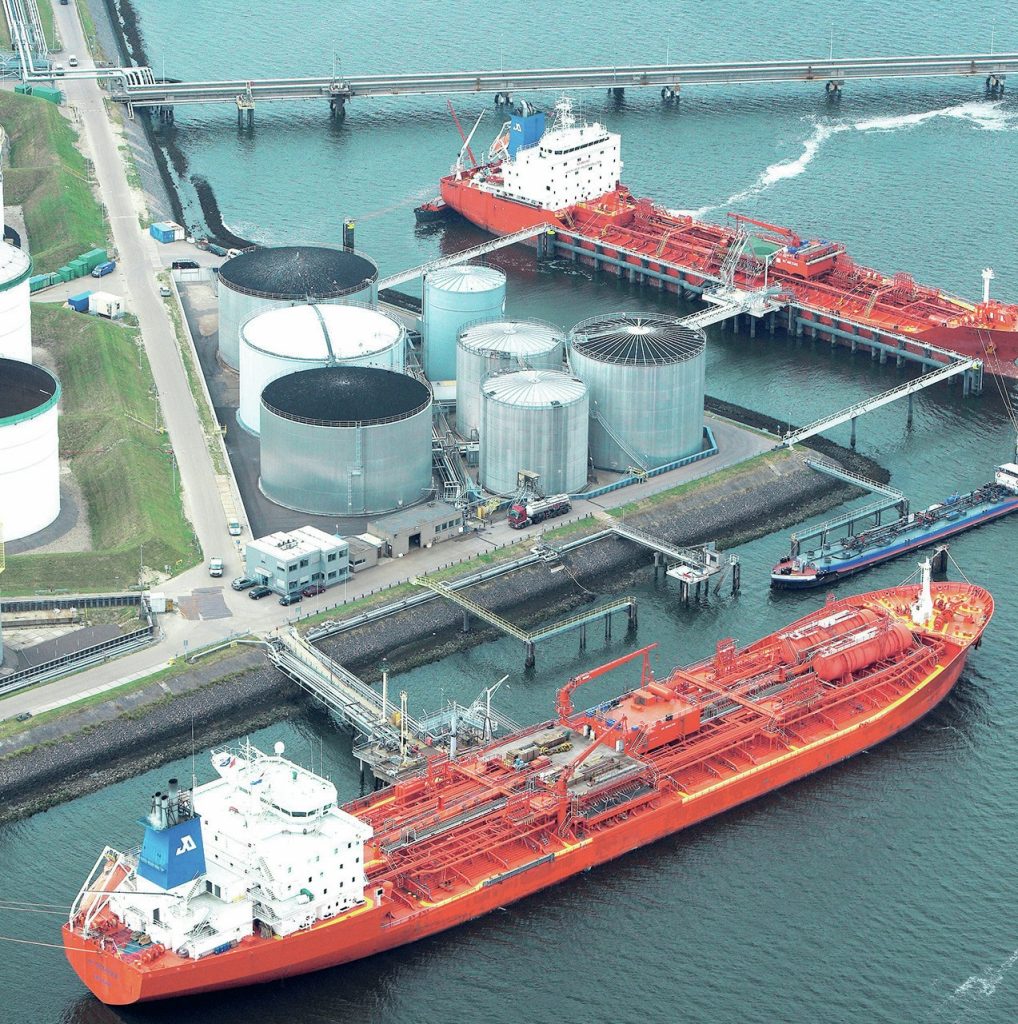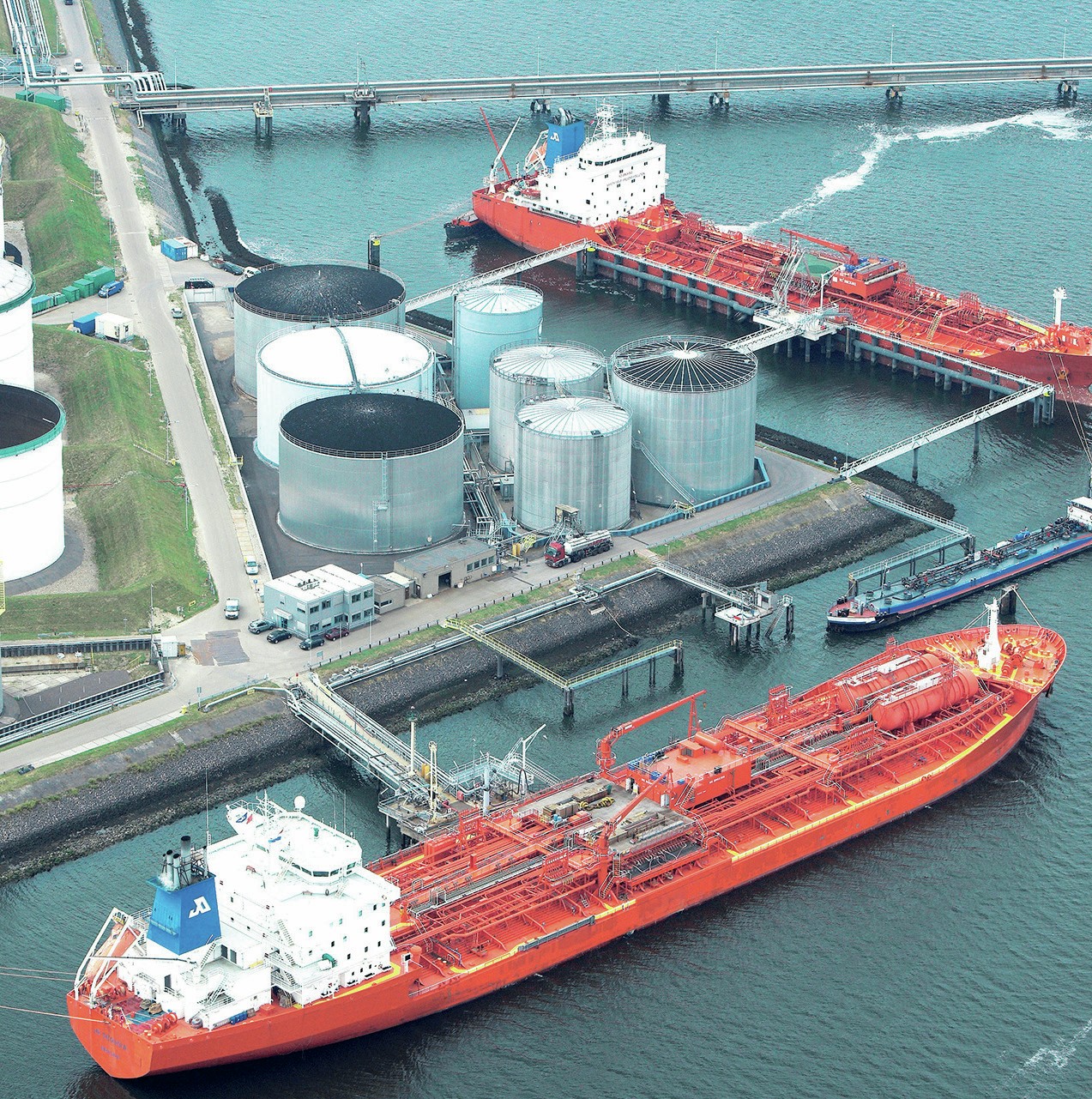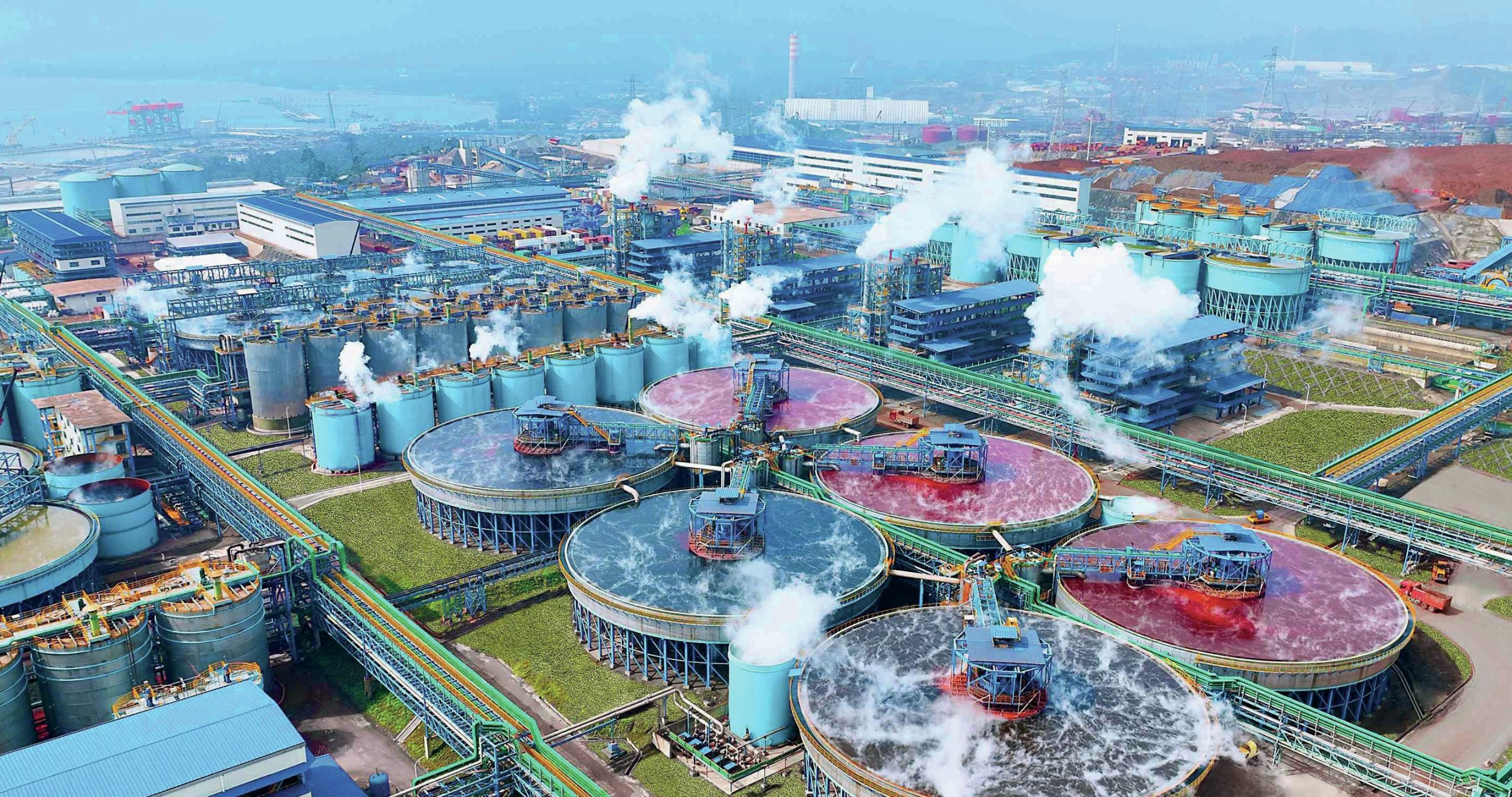Sulphur 416 Jan-Feb 2025

31 January 2025
Sulphur Industry News Roundup
New sulphur remelter for Duisburg

Sulphur and sulphuric acid marketer Aglobis has signed a memorandum of understanding with logistics services company Rhenus to develop a sulphur remelter plant at Rhenus’s Terminal 4 in the river Rhine port of Duisburg, operated by Rhenus Port Logistics Rhein-Ruhr. Aglobis says that the development is a result of changing sulphur supply in Europe. Declining production from refineries and sour gas is leading to less liquid sulphur availability and greater imports of solid sulphur from overseas.
“Ensuring a stable and efficient supply of this crucial material is more important than ever,” said Jan Joop Alberts CEO & Chairman Aglobis AG. “That’s why Aglobis, a wholly owned subsidiary of Mitsui & Co., Ltd., is taking proactive steps to support the European industry’s long-term needs for molten sulphur.”
Aglobis aims to increase overseas imports of sulphur, in order to address the growing demand of European chemical industries. The sulphur remelter will be operated by Aglobis and have an output of approximately 400,000 t/a, with the aim of starting the operation in 2027. Rhenus is set to support Aglobis by providing onsite sulphur warehousing and handling services at the Duisburg terminal. Aglobis is currently assessing logistics options for other stages of the supply chain, including seaport handling in Belgium and the Netherlands, as well as transportation to Duisburg via the River Rhine.
The complete supply chain will include the sourcing and shipping of solid sulphur in large quantities, transshipment to appropriately sized barges and inland waterway transport to Duisburg, remelting at the plant and distribution via low-emission transport to the industry locations in the region. Rhenus has reserved an area of circa 17,000 m2 at its Terminal 4 in Duisburg.
“We are looking forward to starting this cooperation with Aglobis in order to provide industrial manufacturers in Duisburg and the Ruhr area with this critical raw material. As a traditional port logistics provider working with our industry customers for over a century, this project and the logistics services involved are not only part of our key competence, but also of significance for the future of this region,” said Michael Petersmann, Managing Director of Rhenus Port Logistics Rhein-Ruhr.
MOROCCO
QatarEnergy signs sulphur supply deal with OCP
Nutricrops, a subsidiary of Morocco’s OCP Group, has signed a deal with QatarEnergy for the supply of sulphur over the next decade. Over the 10 years beginning in 3Q 2024, QatarEnergy will supply up to 7.5 million tonnes of sulphur. Nutricrops says that the deal will play a crucial role in supporting its mission to provide sustainable and tailored plant nutrition solutions to farmers. The company produces a range of phosphate-based products designed to improve soil quality and optimise agricultural output. The agreement reflects the growing global demand for sustainable agricultural practices, with sulphur playing a vital role in soil management and nutrient balance. In the short term, OCP Nutricrops will continue sourcing sulphur from ADNOC in Abu Dhabi under a previous agreement that will remain in effect until early 2025.
Commenting on this occasion, Saad Sherida Al-Kaabi, Qatar’s Minister of State for Energy Affairs, and president and CEO of QatarEnergy, said: “We are pleased to sign this agreement, solidifying our business relationship both with OCP Nutricrops and the Kingdom of Morocco. This agreement marks a significant step in advancing cooperation between our two companies and fostering mutual growth and value for both sides.”
Qatar is one of the world’s largest exporters of sulphur, with a total production capacity of around 3.4 million t/a.
ITALY
Stellantis and Zeta Energy to jointly develop lithium-sulphur batteries
Car manufacturer Stellantis and battery developer Zeta Energy have announced a joint development agreement aimed at advancing battery cell technology for electric vehicle applications. The partnership aims to develop lithium-sulphur electric vehicle batteries with gravimetric energy density while achieving a volumetric energy density comparable to today’s lithium-ion technology. The companies say that this means potentially a significantly lighter battery pack with the same energy as contemporary lithium-ion batteries, enabling greater range, improved handling and enhanced performance. Additionally, the technology has the potential to improve fast-charging speed by up to 50%, making EV ownership even more convenient. Lithium-sulphur batteries are expected to cost less than half the price per kWh of current lithium-ion batteries.
“Our collaboration with Zeta Energy is another step in helping advance our electrification strategy as we work to deliver clean, safe and affordable vehicles,” said Ned Curic, Stellantis Chief Engineering and Technology Officer. “Groundbreaking battery technologies like lithium-sulphur can support Stellantis’ commitment to carbon neutrality by 2038 while ensuring our customers enjoy optimal range, performance and affordability.”
“We are very excited to be working with Stellantis on this project,” said Tom Pilette, CEO of Zeta Energy. “The combination of Zeta Energy’s lithium-sulphur battery technology with Stellantis’ unrivaled expertise in innovation, global manufacturing and distribution can dramatically improve the performance and cost profile of electric vehicles while increasing the supply chain resiliency for batteries and EVs.”
The collaboration includes both preproduction development and planning for future production. Upon completion of the project, the batteries are targeted to power Stellantis electric vehicles by 2030. Using sulphur, a widely available and low cost component, reduces both production expenses and supply-chain risk.
UNITED ARAB EMIRATES
ADNOC awards design contract for Bab gas processing facilities
ADNOC Gas has awarded Worley Engineering the front-end engineering and design (FEED) contract for new gas processing facilities at Bab Gas Cap (BGC). The new facilities will boost ADNOC Gas’ current processing capacity by 20% or over 1.8 billion scf/d with a final investment decision expected in 2026, ADNOC Gas said. The project’s processing facilities will be designed to optimise production of natural gas liquids (NGL), condensate, sales gas, and sulphur, and supports ADNOC’s broader gas growth strategy as it looks towards UAE gas self-sufficiency.
“Today is an important step forward for this project, which has the potential to substantially increase our gas processing capacity, unlock additional revenue and strengthen ADNOC Gas’ position as a global gas supplier,” Dr Ahmed Alebri, CEO of ADNOC Gas, said in a statement. “This ambitious project will deploy state-of-the-art gas processing technologies and make an important contribution to the UAE’s gas self-sufficiency efforts. We are pleased to see the BGC project reach this stage,” he added.
WORLD
OPEC+ postpones oil supply relaxation
At its December meeting, OPEC+; the Organisation of Petroleum Exporting Countries together with Russia, Mexico, Kazakhstan and some other nations, agreed to once again defer planned increases in oil output, this time until at least April 2025. Some further cuts, amounting to 2 million bbl/d, which were introduced two years ago and scheduled to end in December 2025, were also extended to the end of 2026, as was an additional 3.85 million bbl/d of output cuts from the ‘V8’ countries. Output increases of 2.2 million bbl/d will now begin in April 2025 at 140,000 barrels per month. A slowdown in global demand and rising supply from other sources have accounted for the continuing supply restrictions. Oil prices have been relatively stable at around $7080/bbl for most of the past year.
The projects design scope includes the development of gas processing and conditioning units, acid gas recovery units, dehydration units, sulphur recovery units, NGL recovery units, and CO2 capture facilities, ADNOC Gas said. It also includes the construction of injection facilities and associated utilities, along with the design and routing of new product pipelines for the efficient transfer of liquid sulphur to the Habshan Sulphur Granulation Plant. The facilities will receive hydrocarbons from an innovative development of the Bab field.
AZERBAIJAN
Baker Hughes partners with SOCAR to reduce flaring
Baker Hughes has signed a contract with SOCAR for an integrated gas recovery and hydrogen sulphide (H2S) removal system that will significantly reduce downstream flaring at SOCAR’s Heydar Aliyev Oil Refinery in Baku, Azerbaijan. The project is expected to recover flare gas equivalent up to 7 million Nm3 of methane per year, and further reduce CO2 emissions by up to 11,000 tons per year.
According to the contract signed at COP 29 in Baku, Baker Hughes will integrate its innovative gas recovery and H2S removal system into the refinery’s existing infrastructure to help abate methane and sulphur, two of the most potent greenhouse gas emissions, and remove hazardous H2S from the site. The system will also enable SOCAR to use the recovered gas, which would have previously been flared, as fuel for the refinery. This will reduce overall fuel gas consumption and operating costs at the refinery, creating new opportunities for value enhancement and efficiency gains. Construction and commissioning is expected to take two years.
“We must reduce emissions by 45% this decade to put us on the right path to reach net zero by 2050. The industry has an imperative to act now, and we can do it with existing technology solutions that can be deployed today,” said Baker Hughes Chairman and CEO Lorenzo Simonelli. “This award is a testament to our companies’ shared commitment to act on emissions abatement and represents another significant milestone in Baker Hughes’ journey to help customers drive more sustainable and efficient operations.”
President of SOCAR, Rovshan Najaf said: “Our collaboration with Baker Hughes reflects SOCAR’s commitment to advancing sustainable operations and reducing emissions across our sites. By launching this project, we are making a tangible impact on emissions abatement and setting a benchmark for environmental responsibility. This initiative aligns with our vision for a cleaner, more efficient energy future, supporting our commitment to climate goals.”
PHILIPPINES
Philippines introduces 0.5% bunker fuel sulphur cap
The Maritime Industry Authority (MARINA) of the Philippines is implementing a 0.50% sulphur cap for bunker fuel consumed by the country’s domestic shipping industry effective 1 January 2025, it said. MARINA Advisory No. 2024-35, published on 22 October 2024, provided supplemental guidelines on the implementation, monitoring and enforcement of a 0.50% sulphur limit on fuel oil for all Philippine registered ships in compliance to Annex VI of MARPOL. Ships which are already using distillates (MGO, MDO, IDO) or blends may shift to fuel oil with 0.50% wt sulphur content and are required to accomplish a ship-specific implementation plan (SIP). Domestic shipping firms may extend the compliance deadline based on the SIP timelines as verified by MARINA, but not to exceed five years.




